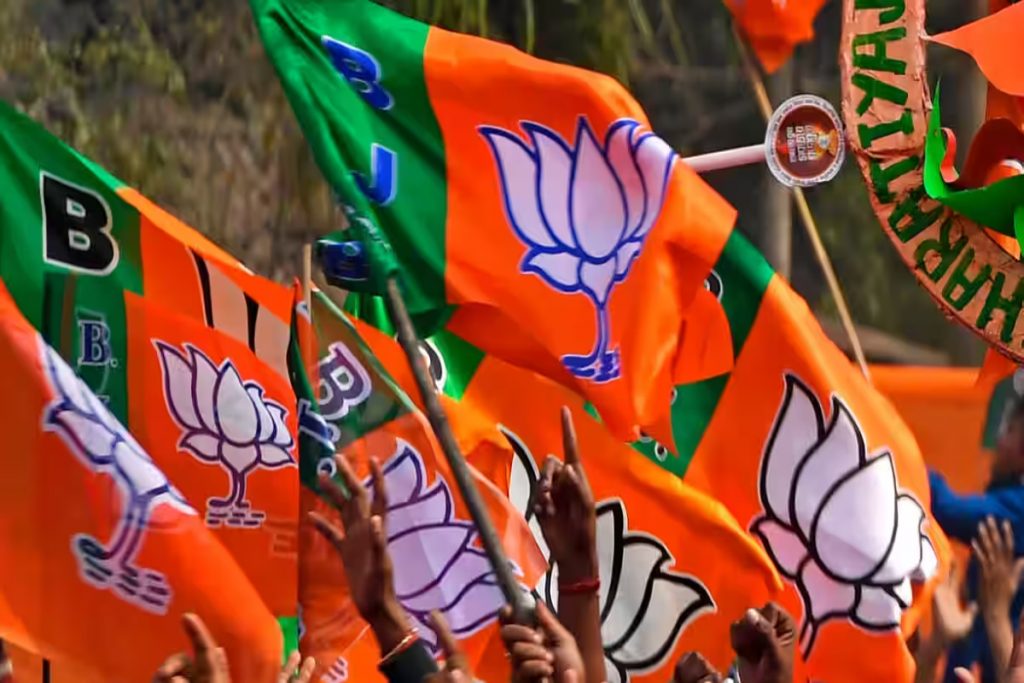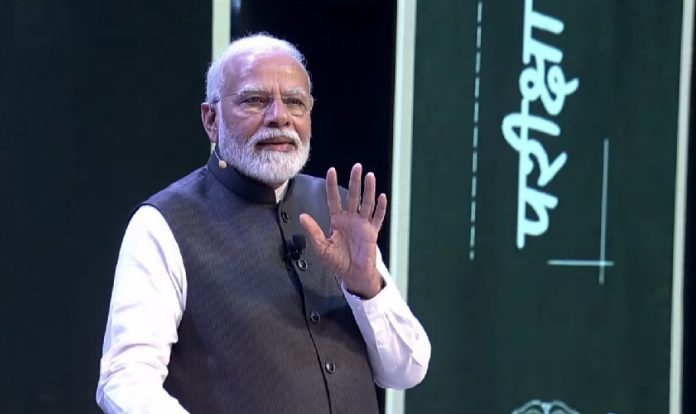Controversy: In a recent development, Ravi Shankar Prasad, a prominent leader of the Bharatiya Janata Party (BJP), has renewed his party’s appeal to the Congress, urging them to attend the historic event that is set to formally inaugurate the new Parliament building on May 28. Prasad’s plea comes amidst a political row surrounding the event, as several opposition parties have declared their decision to boycott it due to the perceived absence of President Droupadi Murmu, who was initially expected to preside over the ceremony.
 During a media briefing, Prasad emphasised the significance of Parliament as the crown jewel of India’s democracy, highlighting the integral role played by the Prime Minister in the parliamentary proceedings. He implored the Congress not to politicise the event and expressed the BJP’s utmost respect for the President, underscoring their commitment to keeping the presidential office free from controversy.
During a media briefing, Prasad emphasised the significance of Parliament as the crown jewel of India’s democracy, highlighting the integral role played by the Prime Minister in the parliamentary proceedings. He implored the Congress not to politicise the event and expressed the BJP’s utmost respect for the President, underscoring their commitment to keeping the presidential office free from controversy.
Ravi Shankar Prasad Urges Congress to Embrace Unity at Parliament Event, Ignites Controversy
Responding to the Congress’ decision to boycott the event, Prasad raised questions regarding the party’s past actions. He rhetorically inquired whether the Congress had participated in the foundation-stone laying ceremony for the parliament building in December 2020, or if they had ever paid their respects to Sardar Patel’s statue in Gujarat or the military memorial at India Gate. Prasad suggested that the Congress’ absence from these significant events reflected their problem with Prime Minister Narendra Modi’s involvement, rather than any genuine concerns related to the President or democratic principles in the controversy.
It is noteworthy that back in December 2020, when Prime Minister Modi laid the foundation stone for the new Parliament building, the Congress had boycotted the ceremony, citing their opposition to the government’s new agricultural laws and the ongoing farmers’ protests. The subsequent withdrawal of these laws did not alter their decision in the controversy.
Following the Congress’ announcement, 19 other political parties jointly declared their intention to boycott the inauguration of the new Parliament building, citing their belief that the essence of democracy had been drained from the institution. This joint statement was later supported by the Bharat Rashtra Samithi (BRS) and the All India Majlis-e-Ittehadul Muslimeen (AIMIM). Opposition parties argued that the absence of the President from the event amounted to an insult to her office, as her role in summoning, proroguing, and addressing Parliament, as well as giving assent to legislative acts, is crucial. They contended that her exclusion undermined the inclusive spirit symbolized by the nation’s first woman adivasi President.
In response to the opposition’s decision, the ruling National Democratic Alliance (NDA) criticized their stance, asserting that this disdain for democratic processes was not a singular occurrence. The NDA considered the opposition’s boycott as another instance of their disregard for democratic norms.
Ravi Shankar Prasad’s Appeal for Unity at Parliament Event Fuels Political Controversy
The new Parliament building has been constructed at a cost of ₹1,200 crore and aims to provide modern amenities and an enhanced infrastructure compared to the iconic colonial-era structure that has housed India’s Parliament for the past 75 years. The forthcoming inauguration ceremony, scheduled for Sunday at 12 noon, will feature a two-hour-long program including multi-faith prayers and will be attended by all Members of Parliament (MPs) and Chief Ministers. Prime Minister Modi will lead the proceedings from the new Lok Sabha chamber, which can accommodate nearly 900 individuals. The event aims to showcase the modern facilities of the new building, with plans for its full utilization beginning during the monsoon session in July.
 In controversy, Ravi Shankar Prasad’s appeal to the Congress, urging them to participate in the inauguration of the new Parliament building, has ignited controversy in the political sphere. While the BJP emphasizes the importance of unity and the role of Parliament
In controversy, Ravi Shankar Prasad’s appeal to the Congress, urging them to participate in the inauguration of the new Parliament building, has ignited controversy in the political sphere. While the BJP emphasizes the importance of unity and the role of Parliament
in India’s democratic fabric, opposition parties have decided to boycott the event, citing concerns about the absence of the President. The underlying tensions and differing perspectives regarding this event underscore the broader challenges and complexities faced in maintaining a healthy democratic discourse.
Ravi Shankar Prasad’s Call for Unity at Parliament Event Sparks Political Controversy
Ravi Shankar Prasad’s appeal to the Congress regarding their attendance at the upcoming inauguration of the new Parliament building has sparked intense controversy and ignited a fierce debate among political circles. Prasad, a senior leader of the Bharatiya Janata Party (BJP), has made a passionate plea to the Congress, urging them to reconsider their decision to boycott the event. However, his appeal has been met with resistance and accusations of political opportunism in the controversy.
The new Parliament building, constructed at a substantial cost of ₹1,200 crore, is seen as a symbol of progress and modernization for the country. It is designed to provide state-of-the-art facilities and amenities, aiming to accommodate the evolving needs of India’s democratic processes. The upcoming inauguration ceremony is expected to be a significant event, with a diverse range of attendees, including Members of Parliament (MPs), chief ministers, and dignitaries from various backgrounds.
The controversy surrounding the event stems from the opposition parties’ objection to Prime Minister Narendra Modi presiding over the ceremony instead of President Droupadi Murmu. The decision to have the Prime Minister lead the proceedings has been interpreted by some as a disregard for the constitutional role and dignity of the President’s office. The opposition argues that as the President summons, prorogues, and addresses Parliament, her absence from such a significant event undermines the inclusive spirit of democracy.
The Congress, along with several other political parties, took a collective stance to boycott the inauguration, expressing their dissatisfaction with the absence of the President and their perception of a diminishing democratic ethos within Parliament. They contend that the soul of democracy has been drained out of the institution and that attending the event would be symbolic of endorsing the erosion of democratic principles.

